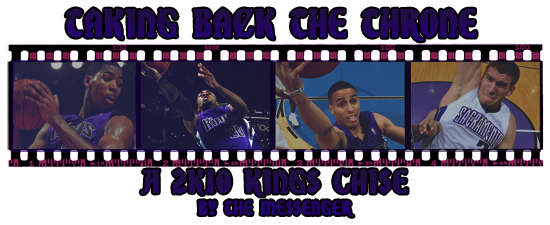
Derek Jeter soon will break Lou Gehrig's Yankee hit record, but it wasn't so long ago that even the perpetually-confident Jeter didn't believe anything like this was possible. Jeter, the Yankee shortstop now known as a great player, a great champion, struggled so much early in the minors he wondered if he had made a mistake choosing professional baseball.
The skinny 18-year-old shortstop who was prone to errors and needed four hits on the final day of his first season to hoist his batting average over .200, called back home to Kalamazoo, Mich., most nights, sometimes in tears. He doubted he belonged, at least once telling a member of the Yankee organization, "I don't think I'm going to make it."
"At one time," recalls Don Zomer, Jeter's coach at Kalamazoo Central High School, "I remember him saying, ‘The Yankees wasted a lot of their money.'"
Seventeen years later, Jeter is a longtime star, the author of the "Flip Play" in the 2001 American League Division Series and the "Mr. November" homer in that year's World Series, countless jump-throws, the face-first dive into the Yankee Stadium stands against the Red Sox in 2004 that left his handsome face bloody. He's been on four World Series winners, played in the Fall Classic two other times and was named the 11th team captain in Yankee history back in 2003.
In an organization that has produced more iconic players than any other in baseball, Jeter's name is up in lights alongside Gehrig, Ruth, Mantle, DiMaggio, Berra, Mattingly, Ford. Jeter likely will be the first player to reach 3,000 hits in pinstripes and, if you believe his kidding with team executive Gene Michael, perhaps join Pete Rose and Ty Cobb as the only players ever to reach 4,000.
Jeter saw Michael in the clubhouse in Tampa during spring training of 2007 and shouted, "Stick, how long you think I can play?"
Maybe as many as six more years, Michael answered.
"I want to play 10," Jeter yelled.
"I said you can't play short for 10 more years and Derek said he could DH later on," Michael says. "He's not that old (35) now and here he is, at Gehrig's record. Golly, just think. Three thousand hits? He might want 4,000. And nothing's out of his reach."
***
When did the Yankees first believe Jeter would be a special player? The answer depends on who you ask.
"He would have stood on his ear to learn something," Butterfield says. "There were a bunch of coaches there who felt the same way about him - that the tools were there and they would catch up to the work ethic. We knew right away the work ethic would be there a long time."
Mark Newman, the Yankees' VP of baseball operations, believes it is 1994, the year Jeter soared through three levels of the minors, a rare feat.
"He was fielding more consistently and hitting," Newman says. "His personality really became evident in that he was a really special guy in a group setting. Even older, college grad guys were drawn to him. He was 20 years old and that's when it all came together - he'd been through the adjustment of being away from his family, done all that work on defense. You really started to believe."
To Bob Watson, the Yankees' GM in Jeter's rookie year of 1996, it was that season's Opening Day in Cleveland, a 7-1 victory over the powerhouse Indians. Dick Groch, the scout who watched Jeter in high school and signed him after the Yankees made him the sixth pick in the 1992 draft, agrees.
"He made two or three good plays and hit a home run," Watson recalls. "Some kids, on their first day, make an error or two and things snowball. That didn't happen."
"I vividly remember a back-to-the-infield catch," says Groch. "I remember thinking, ‘The Yankees recognize the treasure now.'"
***
Jeter's rise is a story of hard work and an uncanny ability to forget about his mistakes, which many who have worked with him say is rare among teenage pros. His work ethic was evident as far back as high school, when, Zomer says, he sometimes had to turn off the lights in the school gym to get Jeter out of the batting cage. Often, after baseball practice, Zomer would ride by the high school field and see Jeter there with his mother, father and sister, taking extra ground balls.
At first, however, "it was not easy," Newman says. "Everyone thinks of Derek now as the golden boy, the chosen one, but it was a struggle."
Jeter signed his first pro contract on June 27, 1992, one day after his 18th birthday, and joined the Gulf Coast League Yankees. Gary Denbo, Jeter's first pro manager, recalls that teammates "used to make fun of Derek because he was so skinny. He only weighed about 160 pounds.
"He had these high-top spikes - at the time they were in fashion in high school. His ankles were so skinny that even when he laced up his spikes, there was still space there so they kind of flapped around."
On his first day, Jeter joined the team on a road trip and Denbo put him into both ends of a doubleheader and Jeter, who had struck out only once in his senior year of high school, whiffed "three or four times," says Denbo, now a player development consultant for the Yankees.
Jeter had a high leg kick in his swing then. "People would not recognize him on video," Denbo says.
But there were similarities to the Jeter of today, too. "We wanted our guys on-deck to be locked in on the pitcher," Denbo says. "He'd go there and be relaxed, looking into the stands, talking, like he does now. At the time, I didn't like that about him. But when he went to the plate, he really focused. It was impressive."
At the end of Jeter's first season, the Yankees wanted him to play a few games at Single-A Greensboro, where he would start the next season. After a long, failure-filled season, Jeter "wasn't excited about going," Newman recalls. But he played well.
From there, Jeter began soaring. "He listened and when you told him something, he could do it very fast," Denbo says. "It gave you hope he was going to be really good."
In 1993, Jeter spent the entire season at Greensboro and made 56 errors. But he hit .295, which showed the Yankees that the fielding woes didn't cloud the rest of his game. Even with the errors, he was voted the league's best defensive shortstop by Baseball America.
Still, there were voices in the organization who believed Jeter perhaps shouldn't be a shortstop. "Some folks thought he was a tall, gangly kid and that body wasn't made for shortstop and he'd have to be a center fielder," Newman says. "But any discussion about it didn't last five seconds. He could catch the ball and throw it accurately. And you usually can't find that kind of offense at that premium position."
The next season, Jeter was so good after 69 games at high Single-A Tampa, the Yankees sent him to Double-A Albany-Colonie, where he hit .377 in about a five-week span. He was promoted to Triple-A and hit .349 in a little over a month. For the entire season, he made only 25 errors.
In 1995, Jeter spent a few weeks in the majors subbing for an injured Tony Fernandez and hit .317 at Columbus. The Yankees were ready - almost - to make him their shortstop.
Heading into the spring of '96 the organization had committed to giving Jeter the job, but Jeter had a so-so spring training, alarming some, although Joe Torre, Watson and those in player development were not among them.
"I remember a conversation with Joe Torre in '96 where he told me that some people didn't think he was ready - he never told me who," Newman says. "But there was talk of trading Mariano (Rivera) for (Seattle shortstop) Felix Fermin.
"Cooler heads prevailed. With all due respect to Felix, that's not something you'd want on your résumé. Imagine what our world looks like if that had happened."
Watson says the Yankees were going to use Fernandez at second base, but Fernandez broke his elbow. If Fernandez had stayed healthy, there was the chance that "Jeter would've been looking over his shoulder and it would've given Mr. (George) Steinbrenner a real out if Jeter had gotten off to a bad start," Watson says. "With Fernandez out, Jeter could just play."
On April 2, 1996, Jeter became the Yanks' 12th different Opening Day shortstop in the previous 15 years. He's missed only one opener since, when he was hurt in spring training in 2001 and Luis Sojo started.
Jeter is now a 10-time All-Star, the kind of player coaches write letters to - Butterfield wrote Jeter after the 1996 season, applauding him for how poised he was on television, whether the Yanks won or lost.
Jeter is also a teaching tool in Yankee player development. Sometimes, Newman will find a prospect with his head in his hands at his locker, despondent over poor play. Newman sits down and talks about the day a skinny 18-year-old needed four hits on the last day to get over .200, or the 56 errors. Sometimes they'll watch grainy video of Jeter's absurd leg kick, then switch to newer clips, like Jeter homering in the World Series.
"There's huge power in the true example of how he got to where he is," Newman says. "It was tough, but he got through it."






Comment